#Justicia /Justice
Explore tagged Tumblr posts
Text
Justice - Iustitia, Dike...or Themis?
En konceptstudie för staty av Rättvisan i gudinneform. Del två (se del ett: Nemesis) av studier för design av statyer på temat Gudinnor kopplade till rättskipning för Eparchens (stadsprefektens) palats i mina berättelsers Aracanea, är en på samma gång mer bekant men mer tvetydig skepnad: rättvisans gestaltning Iustitia. Iustitia, vars latinska namn förstås är upphovet till de romanska språkens…

View On WordPress
#antikens värld /antiquity#bevingad /winged#Fru Justicia /Lady Justice#historiska illustrationer /historic illustrations /ilustraciones históricas#ink & wash#Justicia /Justice#Konceptstudie /Concept Art#Rom#Romarriket /Roman Empire#staty/ statue
0 notes
Text

The echoing voices of a group of 30 Liam Payne fans — holding up signs and posters with the face of the late One Direction star — rung through a busy street of Buenos Aires, Argentina Saturday afternoon as they called for justice in Payne’s death investigation.
“¡Justicia por Liam! ¡Justicia por Liam!” they repeated in unison in front of the courthouse, some holding back tears and others screaming at the top of their lungs: “No to impunity! No to impunity!”
The march, which included fans from across Buenos Aires, called for significant and timely advances in the investigation into the circumstances surrounding Payne’s death. Wearing white T-shirts and holding up posters of Payne’s face, the fans first gathered at Plaza Libertad, before making their way to the courthouse.
Monday marked exactly two months since Payne died of multiple traumas and internal bleeding after falling from the third floor balcony of the CasaSur Palermo hotel. In November, prosecutors identified alcohol, cocaine, and a prescribed antidepressant in Payne’s system at the time of his death, according to a toxicology report. But many questions still haunt the case and the circumstances that led to his death. Saturday’s march was spawned, specifically, after an image leaked online, which appeared to show Payne being carried by three hotel workers back to his room, allegedly mere minutes before he fell off the balcony of a third-story room of the CasaSur Palermo hotel in Buenos Aires.
“We were all very upset about those images,” Valentina Loredanna Bracho, one of the march’s organizers, tells Rolling Stone. “You can tell with that photo that the hotel could’ve done more to save him… They cared more about the image of the lobby than the actual well-being of one of its guests.”
Just days before the march, two hotel workers — the receptionist head and the hotel’s manager — were charged in the case, and are being investigated for alleged negligence leading to wrongful death.
[Full article here]
23 notes
·
View notes
Text
youtube
Del comic de Sur y justicia
Otra vez gracias a @ian-art-28 por darle tiempo a este comic, que me hace mucha gracia la verdad XD jejejeje
Así que gracias a el por darle algo e su tiempo.
Así que de parte mía y de el, Espero y les guste 💚🤍❤️ 🧡
#countryhumans#countryhumans m��xico#senig063#senig#countryhumansméxico#countryhuamns méxico sur#justice#organizationhumans Justicia#ian-art-28#Youtube
21 notes
·
View notes
Text
Spoiler by Mike Maihack
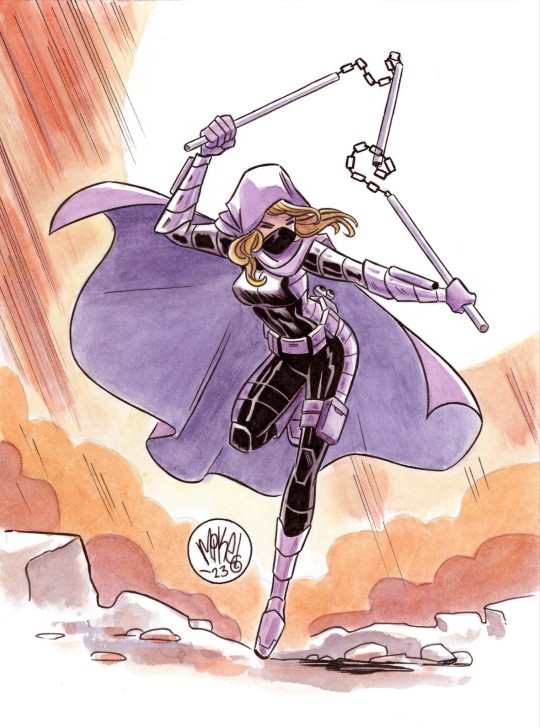
336 notes
·
View notes
Text
English: Every March 24, the National Day of Memory for Truth and Justice is commemorated in Argentina, as a way of remembering the victims of the last coup in Argentina, which began on March 24, 1976.
It lasted 2,818 days
20,000 factories closed
340 clandestine detention centers were created
external debt multiplied ×6
more than 200 banned songs and movies
over a 100 banned books, including children's books
increased poverty from 4,4% to 37.4%
30,000 people missing
more than 4,500 people were murdered and tortured in ways so disturbing that I cannot speak here
Español: Cada 24 de marzo se conmemora en Argentina el Día Nacional de la Memoria por la Verdad y la Justicia, como una forma de recordar a las víctimas del último golpe de estado en Argentina, iniciado el 24 de marzo de 1976.
Duró 2.818 días
20.000 fabricas cerraron
Se crearon 340 centros clandestinos de detención
Se prohibieron y censuraron más de 200 canciones y películas
más de 100 libros prohibidos, incluidos los de clasificación infantil
aumento de la pobreza del 4,4% al 37,4%
30.000 personas desaparecidas
más de 4500 personas fueron asesinadas y torturadas de formas tán perturbadoras que no puedo hablar aquí
#argentina#🇦🇷🇦🇷🇦🇷#march 24#dictadura#charly garcia#la noche de los lápices#tik tok#history#horror history#horror stories#horror#argentina🇦🇷#💔#pls reblog#argentina 1985#nunca más#verdad#justicia#justice#important#Spotify
346 notes
·
View notes
Text







Las 7 almas humanas
#undertale#undertale yellow#frisk#frisk undertale#clover#clover undertale yellow#justice#dertemination#amabilidad#integridad#perseverancia#brave#valentia#justicia#determinación
12 notes
·
View notes
Text

🌹 🌻Reina Justícia for Flores de Mayo🌸🌷
#digital art#my art#art#art tag#artists on tumblr#drawing#illustration#nature#digital painting#flowers#lady justice#reina justicia#flores de mayo#poster art#poster design#poster#greek gods#themis#justice#law#order
21 notes
·
View notes
Text
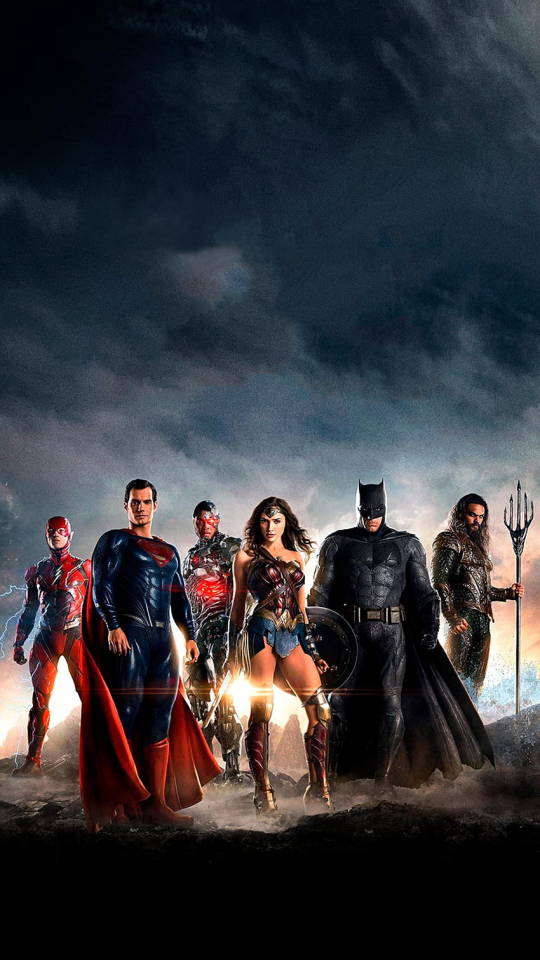


Liga de la justicia
#justice league#the flash#superman#cyborg#wonder woman#batman#aquaman#ezramiller#henry cavill#ben affleck#ray fisher#jason momoa#liga de la justicia#dc universe#dc comics#dc fanart#dcuedit#dcu#dc#wallpaper#aesthetic wallpaper#icons#lockscreen#pretty boy#men muscle
27 notes
·
View notes
Text
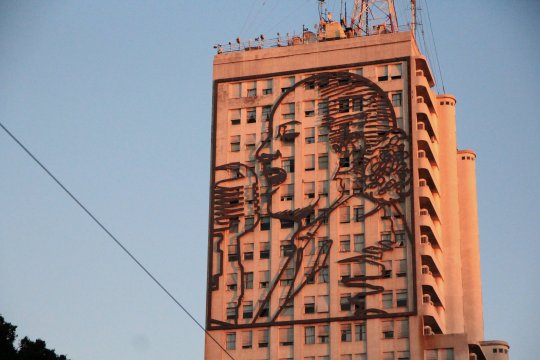
"No hay nada que sea más fuerte que un pueblo. Lo único que se necesita es decidirlo a ser justo, libre y soberano." Eva Duarte de Perón.
#eva peron#evita#argentina#photography#fotografia#justicia social#social justice#social#fotografo#photographer#photography of the day#picoftheday#photooftheday#foto del dia
9 notes
·
View notes
Text

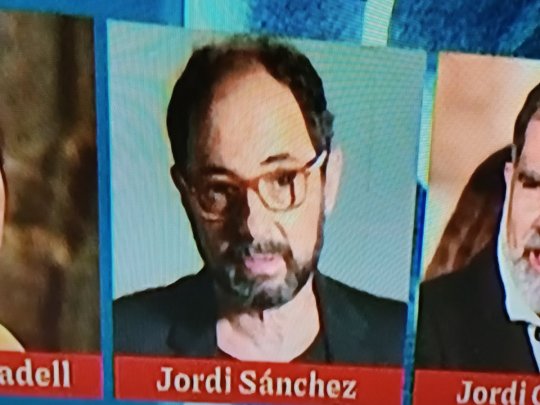
Foto utilitzada per Antena3 per il·lustrar els represaliats per l'Estat espanyol...
Lòpez llibertat!
#Spanish TV talking about Catalan activists and politicians who were jailed and exiled for political reasons (calling them ''run away from#justice'' (huídos de la justicia) as if they had chosen it and as if the Spanish judicial system wasn't a clearly biased political system#with the purpose of punishing dissidence)#and instead of using the photo of ex- political prisoners Jordi Sànchez they used a photo of a famous sitcom actor with the same name#that's how much these journalists know what they're talking about :')#coses de la terra#plats bruts
88 notes
·
View notes
Text

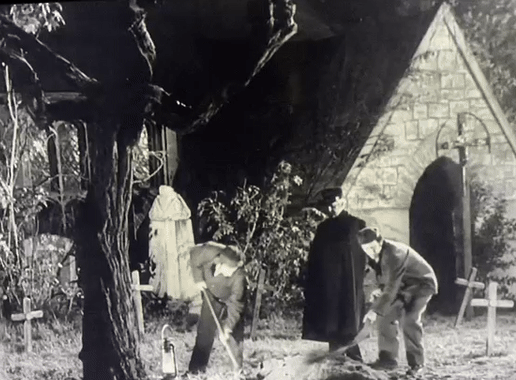
8 notes
·
View notes
Text
1256- El peor analfabeto es el analfabeto político. Él no ve, no habla, no participa de los acontecimientos políticos. Él no sabe que el costo de la vida, el precio del poroto, del pescado, de la harina, del alquiler, del calzado o el remedio, dependen de decisiones políticas. El analfabeto político es tan burro que se enorgullece e hincha el pecho diciendo que odia la política. No sabe, el imbécil, que de su ignorancia política nace la prostituta, el menor abandonado, el asaltante y el peor de los bandidos, que es el político corrupto y lacayo de las empresas nacionales y multinacionales”.
(Bertolt Brecht)
#palabras#frases#textos#textos nocturnos#pensamientos#vida#political#politicamente scorretto#historia#social justice#justicia#el argentino#analfabeto
5 notes
·
View notes
Text

disclaimer: This is just a translation (not mine) of the Infobae article. I will link the original source at the end.
The head of the Criminal and Correctional Court No. 34, Laura Bruniard, investigated this Tuesday two of the accused of having sold cocaine to Liam Payne , the former One Direction member who died on October 16 after falling from the third floor of the CasaSur hotel in the Palermo neighborhood of the City of Buenos Aires, Argentina.
This is Braian Paiz , who met the late singer when he was a waiter at a restaurant in the Puerto Madero neighborhood, one of the most luxurious areas of Buenos Aires. On that occasion, the musician was accompanied by his girlfriend, Kate Cassidy , and two other people.
The other defendant who was investigated for Payne's death on Tuesday is Ezequiel Pereyra , an employee of the CasaSur hotel where the singer died two months ago.
Following the investigation, the two defendants were charged with the crime of supplying narcotics for payment , which carries a sentence of 4 to 15 years in prison, and the judge now has 10 working days to decide their future in the case.
"The hearing lasted three minutes , literally, because neither of them spoke. They only presented a written statement ," sources in the case told Infobae .
However, this media outlet had access to part of what was said in the document presented by Paiz's lawyer, Fernando Madeo Facente , to prosecutor Andrés Madrea and Judge Bruniard. It should be remembered that the Court of Appeals revoked the exemption from prison that the accused had presented and that the crime of which he is accused is not excarcelable.
Paiz, 24, from the Buenos Aires town of Berazategui, did not include anything in the document that he has not previously said publicly. He denies having sold drugs to the singer , and admits that they shared a private environment where there was no compensation.
“At one of those times, he approached me, asked for my contact, I gave him my Instagram and he sent me messages because he wanted to get high. He was already high and I think he was going to a concert ,” Paiz recalled in an interview with Telefé about that October 2 when she said they met.
The accused also defends himself by saying that his cell phone, which was seized by the courts, contains evidence of everything he said , according to the document that is already in the hands of the judge and the prosecutor; and where the accused rejects the accusations about the nickname of dealer that earned him insults from the victim's fans, based on his statements.
The courts believe that the chats between Paiz and Payne are the key to the accusation against the waiter who was fired from the Puerto Madero restaurant where he worked - and where he met the former One Direction member last October - after being accused of the musician's death. Security cameras are recording the conversations.
Payne checked into the CasaSur hotel at midnight on October 13. The courts accuse Paiz of having supplied the musician with cocaine on two occasions on October 14, two days before his death at the hotel: at 3:24 AM and at 10 AM.
“In the chat between Paiz and Payne from the early morning of October 14 , there is a photo of the 5-gram bag of cocaine that he offers him . In the one from the morning of that same day, he tells the singer that he has 3 grams and 7 grams. Payne takes a taxi and goes to get the drugs ,” sources with access to the file told Infobae .
Pereyra and the USD100
The second to present a written statement in his statement on Tuesday was Ezequiel David Pereyra , 21, an employee of the CasaSur hotel who on the day of the tragedy “was suspended from his job for 30 days for having given drugs to a guest,” according to sources in the case.
He is also accused of having supplied him with cocaine, but in this case on October 15 at 7:25 AM and October 16 at 3:47 PM. “He received 100 dollars and in the chat on the day of death, the deceased asked him: '7 grams more than what you gave me yesterday' . Then, he gives it to him by blocking the elevator door in the basement and that is on video,” said the sources of the case.
This Wednesday, Rogelio Luis Nores , 36, who lives in Boulogne and works in business consulting and management, will be questioned by Zoom. He accompanied Payne during his stay in Buenos Aires and now faces charges of abandoning a person in conjunction with the supply and facilitation of drugs.
"He claims that he never saw Payne use drugs and that he was unaware of his addiction problems," those who had access to his initial statements in the case told this newspaper.
The prosecution attributed the supply of substances to Nores and the other defendants, after toxicology tests on Payne revealed traces of alcohol, cocaine and an antidepressant , indicating polydrug use in the hours before his death.
The last investigations this week will be into Esteban Reynaldo Grassi and Gilda Martín, the head of security and the manager of CasaSur who were present on the day of the death. The man was the one who made the call to 911 that alerted about the crisis that Payne was going through before his death.
[original source]
#liam payne#rip liam#justice for liam payne#roger nores#justicia por liam#liam's case#tw death#tw death mention#tw death details#tw liam's death
8 notes
·
View notes
Text
Recordándote día a día.
Una joven echa de piedra blanca y cubierta con un vendaje en sus ojos, andaba por la vieja Roma, viendo a su creador parado frente a una lápida de piedra.
Este creador era de cabellos rojos como el fuego, de gran musculatura y una altura enorme, casi considerándolo un titán entre los humanos.
-¿Que hace aquí?, creí que estaba con su nieto Roma mi señor…-la joven se paraba al lado de su creador, quien no dejaba de ver la lápida.
-Estoy… creo que rezándole a alguien para que me guie…-Dijo pensando bien sus palabras, cada palabra que decía, pareciera eterna, su mente se llenaba de tantas posibilidades.
-Mi señor, es una lápida, si quiere rezar, vaya a un templo…-el muchacho ríe, era una obvia respuesta, pero prosiguió a explicar.
-jejejeje, esta lapida no es cualquier lápida, Justicia, esta es la lápida de mi hermano…
-¿El joven cinco?- Voltea su cabeza hacia él, para que este le confirme con un diminuto ‘‘si’’.
-Hace mucho tiempo, el desapareció, lo único que tenemos de él fue un brazo suyo, que fue dividido por los 4 y ahora, para mí, ya no queda nada. Mi parte se ha esfumado con el tiempo, y ahora solo me queda lo poco que lo recuerdo…y su débil voz…
-Mi señor, no quiero arruinar su melancolía, pero esa parte que ha perdido, se fue porque lo uso mucho al igual que los otros amos…no seamos hipócritas mi señor, la parte de su hermano se fue porque como todo en la vida, se desgasta y muere.
-jejejeje tengo que enseñarte a ser más empática Justicia…y es verdad, lo use mucho, pero…-El hombre se arrodilla- pero me gustaría pensar que está vivo… como yo ahora mismo…cada día y noche, busco en el tiempo, algo que me diga que él está bien…que está en alguna parte de este mundo y que al igual que yo, también nos extraña…-El rostro expresaba tristeza, con una lagrima saliendo de ella, a pesar que su voz seguía siendo calmada.
-Europa…
-Si esta lapida puede guiarme a él, espero que lo haga…porque, no puedo….no puedo no pensar en el…en mi pobre y pequeño hermano menor…-Se levanta y da la vuelta hacia la salida de su pequeño cuarto secreto.-Vamos Justicia, aún hay mucho que aprender.
-Si mi señor…-Ella mira unos segundos a lapida y luego sale del lugar.
En la lápida se ve escritos en romano ‘‘Te recordaremos por siempre...sea donde estés, y vuelve cuando quieras, ya que siempre te esperaremos, con amor tu familia’’ y al final pone el nombre ‘‘Cinco’’.
.
.
.
Un relato corto, pero agregando historia de Europa y Justicia, que esta última aun aprendía a ser un ser vivo.
Además esta historia es para la conmemoración de aquellos que se van, y que este 1 y 2 de noviembre siempre será para recordarlos, aun si no ponemos altar, ellos existirán en nuestros corazones.
Espero y estén bien y gracias por leer
#justice#continentshumans#Continentshumans Europa#organizationhumans Justicia#countryhumans#senig063#senig#organizationhumans
12 notes
·
View notes
Text
Black Canary in the Birds of Prey #2 variant cover by Otto Schmidt

193 notes
·
View notes
Text
“ Bajo las estrellas contigo. ”
.
.
.

♡ Justice Jaller ♡
──・──・・✧ ・・──・──
Au/Justiciary!Killer: belong to me !
Justicia!Jaja: @the-creator-undertale-au
──・──・・✧ ・・──・──
Pronto verán Dance Jaller uu 👉🏻👈🏻
#Justice Jaller#jaller#jaller ship#killer x jaja#jaja x killer sans#Justiciary!Killer#Justicia!Jaja#Justiciarverse#justiciarverse my multiverse#Jaja is not my oc
22 notes
·
View notes